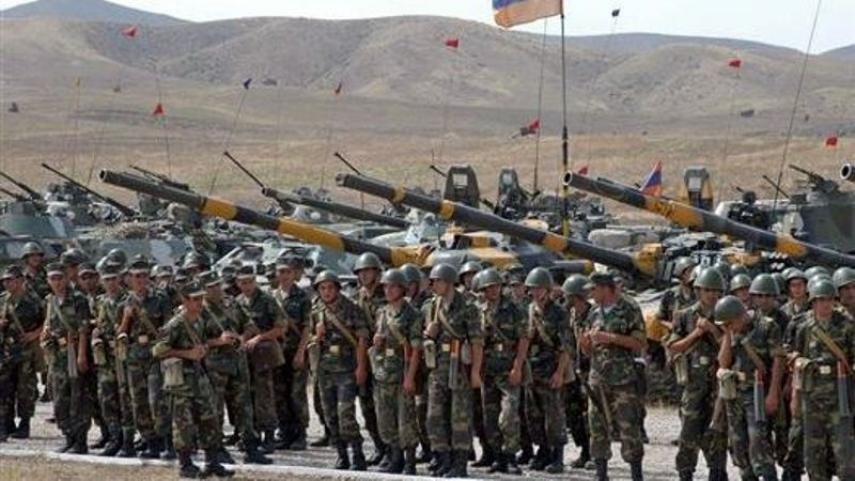NON-GOVERNMENTAL ORGANIZATION
Human Rights in Armenia 2012: Army and Electoral Right

The death roll in the army does not decline in circumstances
of cease -fire
“Nothing
changes in the army system. We ring the bell, provide information...changes are
only imitated but in reality everything stays as it was, there are no systemic
changes, no legislative changes”, says Arthur Sakunts, President of Helsinki
Citizens' Assembly Vanadzor branch (HCAV), summarizing the situation with human
rights in the army.
As he states,
the current legal mechanisms do not provide for proper civil control over the
RA army.
According to
official statistics, in 2012 the death roll in the army increased in comparison
to the previous year. In 2010, 44 deaths were registered as a result of 25 incidents,
in 2011, there were 39 deaths as a result of 26 incidents, and in 2012 there
were 46 cases of death.
According to HCAV
statistics, soldiers' death cases increased because of medical reasons. Also,
there are many cases when soldiers are demobilized prior to the end of term for serious medical
reasons. During the last year, 24 persons applied to HCAV concerning violations
of rights of draftees or military servants, of which 16 cases related to health
issues.
“Now we still
receive alerts from parents, who are not satisfied with the conclusions of
medical commissions or drafting commission. Moreover, there is an impression that
only one approach is practiced: by any means consider all drafters fit for the army
service and draft them”, says Arthur Sakunts.
Ombudsman
Karen Andreasyan expressed his concern regarding the issue of administrative
arrests of military servants without any administrative investigation of cases.
Let us mention
that if a draft law in circulation “Administrative Charter of RA Army” is
adopted, then arrest cannot be practiced as punishment for military servants.
The draft law was elaborated by the Ministry of Defense and received approval
of the RA Government.
Another legal
initiative of the Ministry of Defense in 2012 was draft amendments to the law “On alternative
service”, which is in the phase of discussion.
In opinion of
Zhanna Alexanyan, President of “Journalists for Human Rights” NGO, “the most
serious problem in the army is still the issue of losses”. “Maybe the Ministry
of Defense tries to make some steps in direction of solving the issue, I am
inclined to be optimist, but I was greatly disappointed with the recent
interview with the Minister of Defense. It appears, that 46 death cases
registered in the army are not considered by them as something which spreads
shadow over successes in the army. Then it can be concluded that human lives
for the Ministry of Defense are of secondary importance”, says Zhanna
Alexanyan.
Protection of electoral rights
![]()
 On May 6, 2012 in Armenia the elections to the National Assembly
On May 6, 2012 in Armenia the elections to the National Assembly
and local government elections took place.
As a result of
parliamentary elections, 6 political parties or alliances entered the
parliament and shared 90 parliamentary mandates, and through majoritarian
lists, 41 parliament members were elected, mostly members of the Armenian
Republican Party.
After the parliamentary
elections, on May18, 2012 the Armenian National Congress (ANM) applied to the
Constitutional Court with a request to consider the results of elections
through the party lists as void. However, the Constitutional Court rejected the
application of ANM, considering it groundless.
Civil Society
Institute NGO in cooperation with the American Bar Association within the
framework of implemented program “Legal Initiative: Elections 2012” contributed
to restoration of violated electoral rights. On the day of election, 30 legal ambulance
cars, consisting of lawyers, journalists and observers, visited more than 420
various precincts throughout the whole territory of the Republic of Armenia.
Legal advice was provided to more than 12 calls received on the hot line
080-080-804, regarding violation of electoral rights.
Other
non-governmental organizations also carried out observation missions. They
registered that electoral process was heavily impacted by electoral bribes,
abuse of the state resources and other illegal technologies.
Avetik
Ishkhanyan, President of Armenian Helsinki Committee, summarizing the results
of their observation mission, concluded that during these parliamentary
elections old techniques of violation, such as violence, ballot stuffing and
other, were not used, but a new 'civil' electoral violation was used, that is 'stuffing
of people'.
“A big groups
of people, with different registry, voted several times, which impacted on the
numbers”, he said Mr Ishkhanyan.
The
“Transparency International Anti-corruption Centre” calculated and analyzed the
official electoral results on a specialized computer program and came to a
conclusion that some people voted with 'reactive speed'. They divided electoral
hours by the official number of voters and it resulted in figures that at some
precinct station, voters had only 30 seconds to vote.
Only 15
criminal cases were instituted on the basis of information and mass media
publications about the violations during the electoral campaign and on the Election
Day. The office of the General
Prosecutor rejected to launch criminal cases on more than 200 calls received by
them.
According to
NGOs which monitored elections, the law enforcement agencies proved inactive in
prevention of violations of law and bringing
to responsibility those who were engaged in these violations. Nevertheless,
several local and international organizations stated that these elections were
one step forward in comparison to previous national elections.
Gayane
Arakelyan

